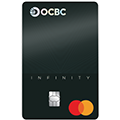Tired? Or retired? Plan a new vocation
Tired? Or retired? Plan a new vocation
You only live once and your lifetime is a unique opportunity.
Ageing Well with Vocational Wellness
Definition
Vocational Wellness refers to the ability to gain personal satisfaction from our endeavours - be it a career or voluntary work - while maintaining a healthy work-life balance.
The vocationally well person achieves personal satisfaction and fulfillment through work that is consistent with his or her personal values, interests and beliefs. A person who is meaningfully engaged in his or her vocation finds it personally rewarding to contribute his or her skills, experiences and talents to work. Vocational wellness extends beyond work to volunteerism. Everyone has a unique gift, talent, vocational skill or strength that can be used for the benefit of the community. The investment of time and energy is returned immensely multiplied, thereby enriching life, rather than consuming one’s energies and resources.
And only you can decide what you are going to make of it. What you choose to do in your life, the work you do, will affect the kind of person you become and the legacy you leave behind.
As we go through life, there are many changes in the purpose of work and it is inevitable that we need to change in order to continue to grow, and to suit the new purposes that develop. When in their 20s, people are proving themselves; in their 30s, they are achieving and earning. By 40, people want more authenticity, meaning they want to be at their best while being themselves rather than trying to fit in or live up to someone else’s standards.
By the time they reach their 50s and beyond, most people yearn for more meaning in their work. Mature people want to use their talents and accumulated wisdom, not just to prove themselves or to get to the top, but as a way to give back to society.
With each major shift, something different is required for your work to be satisfying and rewarding. Fulfilling work is a moving target requiring continuous improvement.
Many people make inspiring changes leading to more enjoyable and rewarding careers. One should believe that regardless of the obstacles, it is always possible to achieve fulfilment in your career. It takes commitment and a conscious effort to make it happen.
The saddest thing is when people look back at their lives and regret not having done things they wanted to do. By deciding to give it your best shot, you may make mistakes, you may find dead ends or barriers that take years to overcome, but you will not regret your life. And chances are good that you will achieve much more than you thought possible.
Here are a few things one should keep in mind, when finding your second vocation after retirement:
Be clear about what you DON’T want
The first step towards finding a fulfilling career is to look at your current situation. Assuming you were not completely fulfilled in what you did, there would have been something wrong or missing from that job role or work environment. The more precisely you can identify it, the easier it will be to make sure your next role is an improvement so that you don’t just end up jumping jobs for the sake of keeping yourself occupied.

A career change, especially later in life, is often a big commitment, so you will want to make sure you get it right. The best way is to list everything that bothers you. By making this list, you will become much clearer and more realistic about what was actually wrong with your job and what steps you can take to improve it. Often the changes needed may be less drastic than it feels at first.
Envision the ideal
Once you have clarified what you don’t want, focus on what you do want. This is the time to dream, imagining that anything is possible. With an idealist viewpoint, you can tap into your true desires. Dreaming big is vital because it will help you identify what is really important to you. And that is the secret to fulfilment. Only what you truly want will satisfy you, no matter what others may say. Also, once you start thinking about what you want, you will be alert to new opportunities to create what you are looking for.
When you first start envisioning what you want, you may not have a lot of the details. So start with the feelings you want – the passion, pride and joy. What makes you jump out of bed in the morning? What gives you a surge of energy? What supports you and nurtures you? What warms you with pride and satisfaction? What do you want to see, hear and feel? If you find this step difficult, make it easier by tapping into your creativity. Rather than thinking hard, start doodling, or paint a picture.
You don’t need any artistic talent, just some willingness to experiment and a few coloured markers! Or look through a few of your favourite magazines to find images that represent what you want and put them together to make a collage. When you are done, describe what it means to you to a trusted friend. The exercise will bring much more clarity and inspire you towards making it happen.
Once you have envisioned the ideal, start to deal with the practicalities.
Fill in the details
Once you have envisioned the ideal, start to deal with the practicalities. Include all the basics such as field, position, location and income. Include what is important to you on the softer side, such as work culture, relationships, leadership styles, values and opportunities. Be as specific as you can. Refer to your list of what was wrong and what was missing from your previous situation and make sure you include their opposites in your list.
You don’t need to know every detail about your next job or vocation. Just identify what is important and then you can be open to discovering the many ways that your criteria can be met. The most important parts are what you feel most strongly, as those feelings and images will guide you to your desires.
Any major change involves compromising, and a retirement or change in vocation is no exception. As you begin to consider the implications of the changes you want, you will also notice what you have to compromise. If you are planning to retire, you have to prepare yourself that you no longer have the status and security that came from being associated with that company. However, those familiar aspects of your life can be created anew, perhaps in very different ways when you take on a second vocation.
Prepping yourself this way is important because it affects your core identity and can have an impact on your confidence and motivation. It is useful to imagine these changes before you go through with them so that you can be prepared. You will need to develop new attitudes and support systems as you get used to all aspects of your new vocation.
Your new change may also affect your family and friends, who may resist to some degree. You can prepare them by being open and honest about what they can expect. At the same time, you may need to enlist some new friends to support you through this challenging time.
No one can go through a major career change without feeling some fear, uncertainty and loss. Think of those feelings as a signal of your growth and development, just as important in the later transitions of your life as at any time. The more you let go, the more you will reap the benefits of the change you desire.
Invest in the change
The process of finding fulfilling work is challenging but ultimately very rewarding. It affects what you experience and achieve in your lifetime and allows you to express your highest purpose. In our age of unprecedented choice, more people are aiming high in their careers in terms of achieving their greatest personal aspirations. As a consequence, there are many more opportunities and services available now to support you in this challenging endeavour.
You may need continuing education in your new field, new contacts to break into new social and business networks, and time to contemplate and plan. To complement these key stakes, your best investment is someone who will help you reflect and make your own choices; someone with an open mind who will believe in your dreams and champion you to do your best.
The views, material and information presented by any third party are strictly the views of such third party. Without prejudice to any third party content or materials whatsoever are provided for information purposes and convenience only. OCBC Bank shall not be responsible or liable for any loss or damage whatsoever arising directly or indirectly howsoever in connection with or as a result of any person accessing or acting on any information contained in such content or materials. The presentation of such information by third parties during on this OCBC Bank website does not imply and shall not be construed as any representation, warranty, endorsement or verification by OCBC Bank in respect of such content or materials.
Did you find what you were looking for?
That's great! Is there anything else you would like to share?
Did you find what you were looking for?
This is embarrassing! How can we improve your experience?
An error occurred. Please check that you have input the correct information before re-submitting.
We are unable to capture your message at the moment. Please try again shortly.
Thank you for your feedback.
This will help us serve you better.









